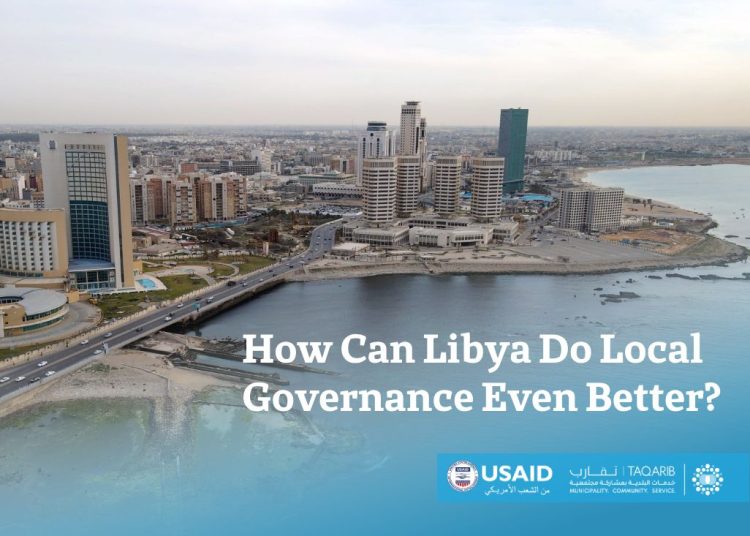A study conducted by the Taqarib grantee, the NGO, H20 has made seven recommendations to the Local Administration Law No. 59.
Taqarib is a USAID-funded project that aims to strengthen the unity of the Libyan state by enabling municipalities to provide better local services.
Taqarib says Libya’s unprecedented decentralization over the last four years has led to the transfer of 16 public services to over 140 municipalities. Now, residents of municipalities and decentralization practitioners are asking, what’s next and how can Libya do local administration even better?
It explained that H2O led an eight-month effort alongside residents, think-tanks, academics and CSOs to generate recommendations and potential modifications to Law 59. They also interviewed over 500 residents of Tripoli central municipality to discover the gaps between the current process and what residents need most.
They came out with seven main recommendations for how to improve the local governance process. These are:
1. Improving data collection and analysis
2. Increasing local revenues
3. Strengthening institutions and governance in Libya
4. Improving solid waste disposal in collaboration with the national service provider
5. Improving water conservation and sewage water treatment
6. Increasing community participation in local decision-making,
7. Improving the municipal electoral system to ensure greater participation of women and youth.
A city-wide waste recycling project for Benghazi is being conducted (libyaherald.com)










